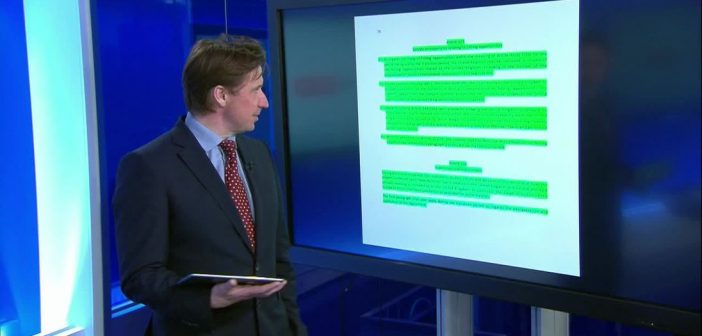EU leaders have agreed their opening negotiating position for the final round of Brexit talks.
The guidelines adopted at the European Council summit in Brussels, which focus on the future relationship between the UK and the EU, will provide the mandate for the EU’s chief negotiator Michel Barnier in the coming months.
Both sides remain committed to a timetable that aims to reach a political declaration outlining the basis of a future agreement by the end of this year, ahead of the UK’s exit from the EU in March 2019.
Broadly unchanged from draft versions published earlier this month, the final document reasserts the EU’s “determination to have as close as possible a partnership with the UK in future” while warning Theresa May’s insistence on leaving both the customs union and single market “will inevitably lead to frictions in trade” and “negative economic consequences”.
There is also a call for “intensified efforts” on issues that remain unresolved from the earlier stages of negotiations, not least around the Irish border and Gibraltar.
The guidelines say the EU is committed to working towards a “balanced, ambitious and wide-ranging” future free trade agreement, but insists it cannot offer the “same benefits” as single market membership.
However, the document also suggests the EU would be prepared to reconsider some of the guidelines if the UK’s position on the single market or customs union were to “evolve”.
While the free trade agreement envisaged by the EU would include zero tariffs on goods across all sectors, and close co-operation in security and intelligence sectors as requested by Theresa May recently in Munich, there are a number of areas that will be seen as problematic by UK negotiators.
Given the recent outrage expressed by some Brexiteers in relation to the continuation of the Common Fisheries Policy during the implementation period, one obvious flashpoint will be the EU demand that “existing reciprocal access to fishing waters and resources” should remain on current terms.
Other areas of likely contention will be demands for UK alignment with EU rules and standards in competition, state aid, tax and environmental policies in order to preserve a “level playing field”.
Responding to the EU27’s decision, Theresa May said: “I believe there is a new dynamic in the negotiations.
“I believe we are approaching this with a spirit of co-operation, a spirit of opportunity for the future as well, and we will now be sitting down and determining those workable solutions for Northern Ireland, but also for our future security partnership and economic partnership.
“I believe it is in the best interest of both the UK and the EU that we get a deal that actually is in the interests of both.”
According to Sky sources, EU leaders also discussed the possibility of a UK-US trade deal threatening a post-Brexit one with the bloc.
On Thursday evening, Mrs May addressed fellow leaders at a dinner in which she acknowledged “compromise on both sides” had been required to reach agreement on the legal terms of an implementation period, which has now been rubber-stamped by the EU.
The implementation, or transition, period will see the UK leave the EU in March 2019, but continue to observe EU rules until the end of 2020.
However, UK negotiators will be able to set up and ratify free trade deals with non-EU countries during the period.
From – SkyNews




